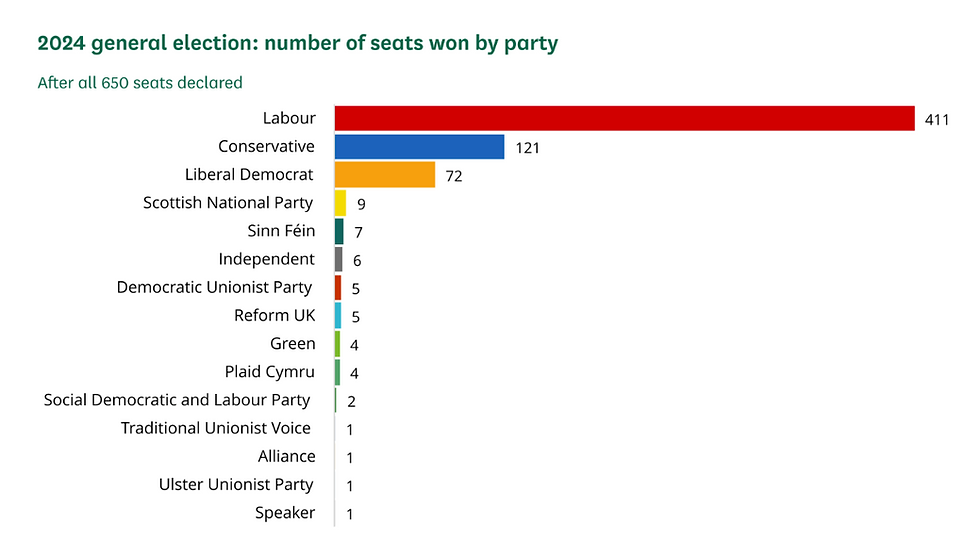Millennials and Money
- david42834
- Feb 16, 2022
- 3 min read

Millennials are often labelled as entitled, materialistic and unprepared for the real world. However, studies show that millennials share the same economic aspirations as generations before them. They constantly worry about the attainability of homeownership, stable employment and early retirement. The current global economic climate has escalated these concerns. Millennials are people born between 1981 and 1996, making the oldest millennials 39 and the youngest 24. This means that millennials have lived through the 2008 recession and now, COVID-19. The Great Recession of 2007–2009, left more than 15% of millennials in their early 20s out of work, many of whom are still struggling to get their feet on the ground. Studies show that millennial earnings have been the slowest to recover since the last financial crisis. Millennials are taking yet another hit with the global pandemic. This is particularly hard on Black people both in regards to health and finance. The pandemic has shined a spotlight on massive inequality by race, ethnicity and gender.
Financial health in a time like this may seem daunting, however, millennials still have time to recover and the current crisis offers an opportunity to properly rethink finances and build resilience for the future. We have put together 5 tips to help millennials stay financially healthy at this time:
Track your finances and automate savings
Key advantage millennials have over previous generations is the advancement of technology which has made sorting finances a lot easier. There are several digital tools available to help reach your financial goals and monitor your progress every day, from the safety of your home. In order to reach your goals, it’s important to monitor your progress. Create a budget and keep track of what you’re spending. Automate your finances so that savings and spending money are separated as soon as you receive some income, this way you can resist the temptation to spend everything. If you’ve recently entered the workforce, those first few paychecks can be a revelation. Calculate your monthly income, create a monthly budget and decide how much you can save and how much you will invest.
2. Follow the 50–30–20 Rule
This means spending 50% of your income on your needs (bills, groceries, housing, transportation, etc.); 30% towards your wants (travel, eating out, social activities, etc.); and 20% towards savings and investments. Due to the current situation, there might need to be some flexibility with this but make sure the 20% is still kept towards savings and investments. It may also help to start thinking of your savings like paying bills, this will make you more inclined to commit every month.
3. Manage Debt
A lot of millennials take out student loans and spend many years paying back. This coupled with credit card loans, mortgage repayments and other forms of debt put millennials in a precarious position. Paying off debt as soon as possible should be a high priority once a steady paycheck is coming in. Start by identifying all the debt you have and prioritising paying back the debt with the highest interest rate. Credit card loans usually have the highest interest rates so you may want to pay those first. You may also want to consider refinancing your student loans if possible. This involves taking on a new loan to pay off an old loan, however, this is very context-specific so speak to a financial adviser first. If you are having trouble affording student loan repayments during this time, speak with your bank to see if you qualify for any of the new government-backed schemes that have been launched in response to the pandemic. Do your research.
4. Invest
Millennials have the advantage of compound interest. A dollar invested in your twenties is worth more than a dollar in your thirties, forties, or fifties. No amount is too little or too much. After paying your bills and saving for emergencies, you should look towards investing a little each month. Investing could go a long way towards a retirement fund, although it is the last thing on your mind when you enter the workforce; life moves very quickly. The difference between millennials starting a retirement fund in their early 20s and starting in their early 30s could be £100,000 or more. Investing has been made easier due to the prevalence of digital investing tools like Wealth8, make sure to sign up.
5. Be Tactical
Note the things you have been able to live without in lockdown and keep them in mind. This will help you cut down on spending when things return to normal. You may want to negotiate working more days remotely so you can save on food and transport. The pandemic has given much more leverage on remote and flexible working options. Money usually spent on social activities and things like clothes can also be saved in this time, to help you stay a step ahead financially post-COVID.




Comments